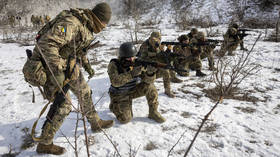E.On warns on electricity investment
Germany's E.On says it will delay new projects if the state doesn't keep promises, after claims officials have misled power companies about the potential of Russia's electricity market to make them build extra capacity.
Global power firms pledged more than $30 billion to upgrade Russia's decrepit network. That's based on an official government report by 2020 electricity demand will triple. Independent experts say that's recklessly optimistic in the best of times, let alone the current downturn.
Chief culprit is former state power supremo Anatoly Chubais, according to Dr Bulat Nigmatulin, Deputy Director of the Institute for Monopoly Problems.
“Chubais tricked not just the energy companies, but the government itself. He based the sector's official report on winter 2006 consumption when there were freak frosts, and record GDP growth. Needing another 750 billion kilowatt hours by 2020 is twice the best-case and 3.5 times the likely scenario.”
In the next 12 years E.On vowed to pump $2.3 billion into Russian electricity. But the government has also broken promises to set up the lucrative wholesale system known as the capacity market. Sergey Tazin, CEO of E.On Power Russia says the company is now looking at holding off on new projects.
“The future capacity market is key as that's where we expect return on investments. We will be maybe taking options of delaying of commissioning some projects.”
Adding to industry woes is that power supply contracts tend to be long-term. That means firms can't renegotiate prices in the crisis, even though electricity use in Russia's already slumped 13% this year.













